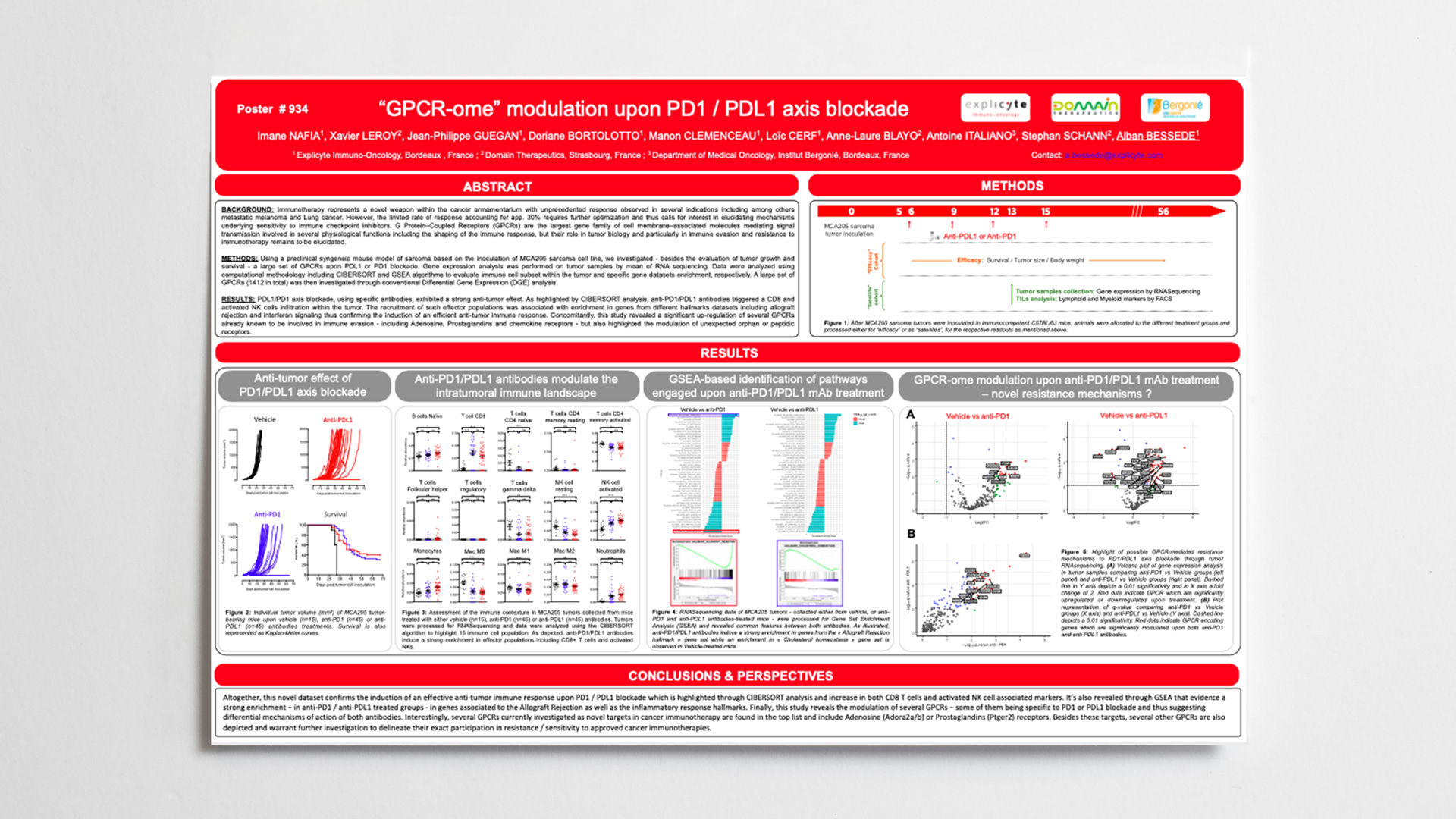Explicyte will be attending the AACR Virtual Annual Meeting 2020 and will present new results from its collaborative work with Domain Therapeutics on the GPCRome modulation in the context of cancer immunotherapy.
“GPCR-ome” modulation upon PD1 / PDL1 axis blockade
Presenter/Authors
Explicyte, Bordeaux, France, Domain Therapeutics, Illkirch, France, Institut Bergonié, Bordeaux, France
Explicyte, Bordeaux, France, Domain Therapeutics, Illkirch, France, Institut Bergonié, Bordeaux, France
Abstract
Background: Immunotherapy represents a novel weapon within the cancer armamentarium with unprecedented response observed in several indications including among others metastatic melanoma and Lung cancer. However, the limited rate of response accounting for app. 30% requires further optimization and thus calls the interest in elucidating mechanisms underlying sensitivity to immune checkpoint inhibitors. G Protein-Coupled Receptors (GPCRs) are the largest gene family of cell membrane-associated molecules mediating signal transmission, involved in several physiological functions including the shaping of the immune response but their role in tumor biology and particularly in immune evasion and resistance to immunotherapy remains to be elucidated
Methods: Using a preclinical syngeneic mouse model of sarcoma based on the inoculation of murine sarcoma MCA205 cell line, we investigated – besides the evaluation of tumor growth and survival – a large set of GPCRs upon PDL1 or PD1 blockade. Gene expression analysis was performed on tumor samples by mean of RNA sequencing. Data were analyzed using computational methodology including CIBERSORT and GSEA algorithms to evaluate immune cell subset within the tumor and specific gene datasets enrichment respectively. A large set of GPCRs (1412 in total) was then investigated through conventional Differential Gene Expression (DGE) analysis.
Results: PDL1/PD1 axis blockade, using specific antibodies, exhibited a strong anti-tumor effect. As highlighted by CIBERSORT analysis, anti-PD1/PDL1 antibodies triggered a CD8 and activated NK cells infiltration within the tumor. The recruitment of such effectory populations was associated with enrichment in genes from different hallmarks datasets including allograft rejection and interferon signaling thus confirming the induction of an efficient anti-tumor immune response. Concomitantly, this study revealed a significant up-regulation of several GPCRs already known to be involved in immune evasion – including Adenosine, Prostaglandins and chemokines receptors – but also highlighted the modulation of unexpected orphan or peptidic receptors. Altogether, this novel dataset confirms the induction of an effective anti-tumor immune response upon PD1 / PDL1 blockade and highlights the modulation of GPCRs that warrants further investigation to delineate their exact participation in sensitivity to immunotherapy.


